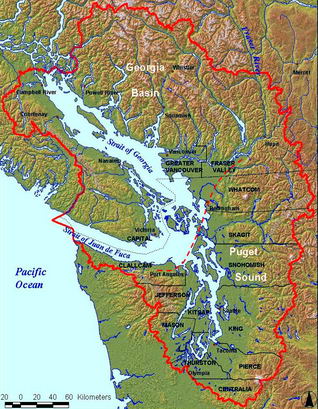Wandering around the web, finding stories:
- Yakamas say development is damaging sacred cultural sites (Yakima Herald)
- The dam removal project in the Klamath Basin is in a public-comment period. Removal would not begin until 2020, and would be even larger than the Elwha removal project.
- Part of the health care reform package was a provision making the Indian Health Care Improvement Act permanent
- Dedication of the two water treatment plants, one for Port Angeles and one here at Elwha, which are prerequisite for the Elwha River restoration project will happen on April 2.
- The fuss over tuition support for out-of-state native students at Fort Lewis College in Durango, Colorado, had another chapter this week (additional story). Truth: I can't quite figure out how things were left.
- University of Michigan is preparing to return a collection of 1300 culturally unidentifiable human remains. This is pursuant to a March 15 ruling from the Department of the Interior that "transfer of culturally unidentifiable remains is to be made to a tribe from whose tribal or aboriginal lands the remains were excavated or removed."
This is not news, per se, but very interesting. Chelsie Papiez of Evergreen College has posted her masters thesis on the web. It's about climate change effects and tribes' traditional ecological knowledge. Climate Change Implications for the Quileute and Hoh Tribes of Washington: A Multidisciplinary Approach to Assessing Climatic Disruptions to Coastal Indigenous Communities is a 128 page PDF file. She has also posted a 20-page version, Climate Change Implications for the Quileute and Hoh Tribes. Either one is interesting reading, and pertinent to Elwha's similar position as a coastal tribe.



No comments:
Post a Comment